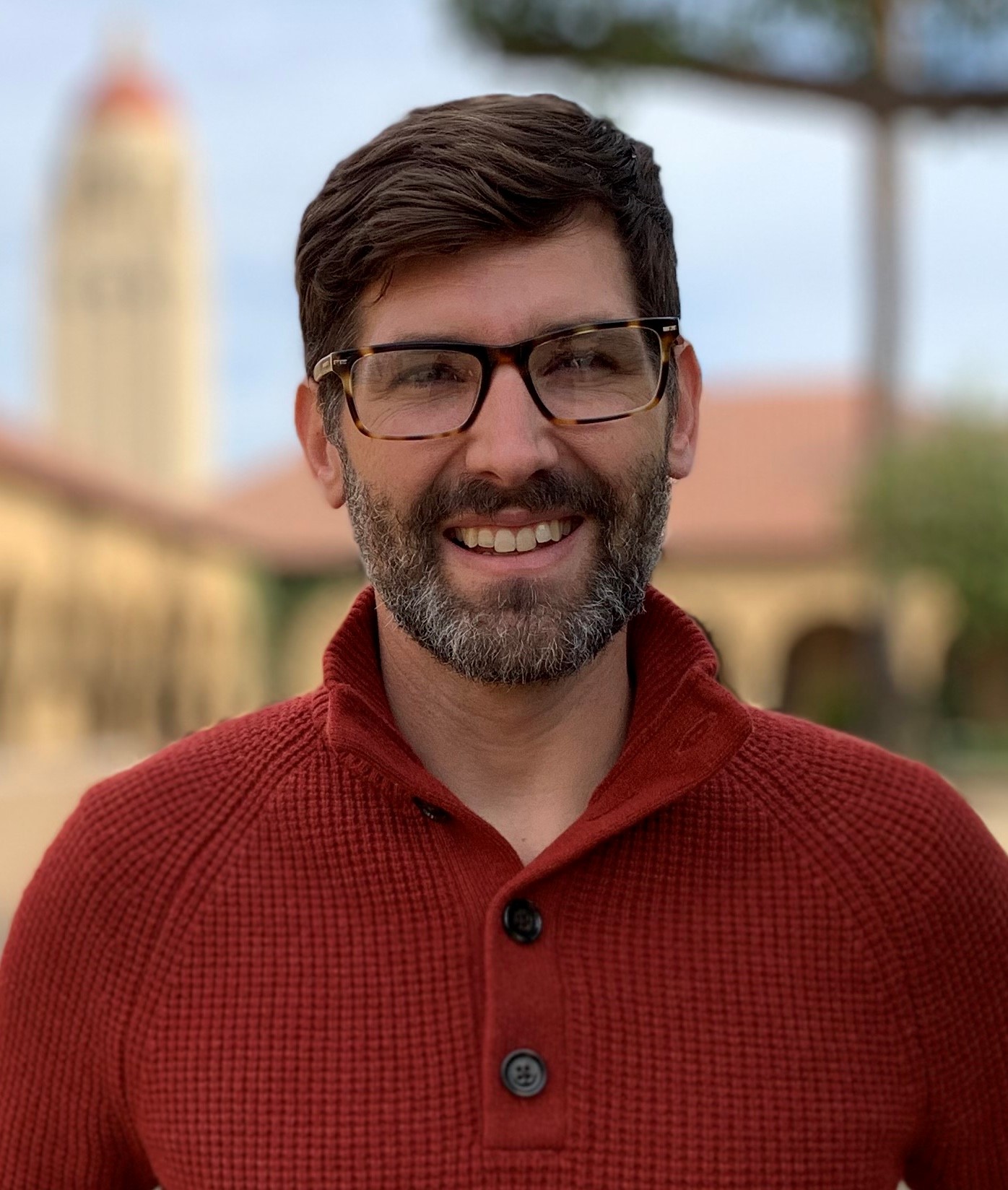This annually presented lectureship recognises early career researchers, typically within twelve years of attaining their PhD or equivalent degree, who have made significant contributions to the field of biomaterials. Nominations open in the autumn, and the winner is announced in the spring.
The Lectureship recipient receives:
- £1,000 to cover travel and accommodation costs to attend and present at a leading international meeting
- An invitation to contribute an article to Biomaterials Science and to receive a complimentary cover for the issue in which the article appears
Our latest award winner 2023
Eric Appel
Eric A. Appel is an Associate Professor of Materials Science & Engineering at Stanford University. He received his BS in Chemistry and MS in Polymer Science from California Polytechnic State University in San Luis Obispo, CA. Eric performed his MS thesis research with Dr Jim Hedrick and Dr Robert Miller at the IBM Almaden Research Center in San Jose, CA. He then obtained his PhD in Chemistry with Prof. Oren A. Scherman at the University of Cambridge.
For his PhD work, Eric was the recipient of the Jon Weaver PhD prize from the Â鶹AV and a Graduate Student Award from the Materials Research Society. Upon graduating from Cambridge, he was awarded a National Research Service Award from the NIBIB and a Wellcome Trust Postdoctoral Fellowship to work with Prof. Robert Langer at MIT.

Eric’s research at Stanford focuses on the development of biomaterials that can be used as tools to better understand fundamental biological processes and to engineer advanced healthcare solutions.
His research has led to more than one hundred publications and 30 patents. While at Stanford, Eric has been awarded young faculty awards from the Hellman Foundation, American Diabetes Association, American Cancer Society, and PhRMA Foundation. He also recently received the IUPAC Hanwha-TotalEnergies Young Polymer Scientist Award in 2022 and the Society for Biomaterials Young Investigator Award in 2023.
See all previous winners
Guidelines for nominators and candidates
Find out who is eligible for this award, about the nomination process and see who is on the selection panel.
Nominations for the Biomaterials Science Lectureship 2025 are now open and will close on 31 January 2025.
Established in 2014, this international lectureship honours early-career scientists who have made significant contributions to the field of biomaterials.
Open to all researchers throughout the world
The Biomaterials Science lectureship is open to all researchers throughout the world. This includes, but is not limited to, members of the Â鶹AV and researchers in academia or industry.
All career levels welcome
Nominators do not need to be senior researchers, and we encourage nominations from people at all career levels
We believe we have a responsibility to promote inclusivity and accessibility in order to improve diversity. Where possible, we encourage each nominator to consider nominating candidates of all genders, races, and backgrounds. Please see the Â鶹AV's approach to Inclusion and Diversity.
Please note, current Biomaterials Science Editorial Board members and previous recipients of this lectureship will not be eligible for the current lectureship.
Eligibility
To be eligible for the Biomaterials Science Lectureship, the candidate must:
- Be an independent researcher- PhD students and postdoctoral research associates are not eligible
- Be actively pursuing research within the biomaterials field, and have made a significant contribution to the field
- Be at an early stage of their independent career (this should typically be within 12 years of attaining their doctorate or equivalent degree, but appropriate consideration will be given to those who have taken a career break, work in systems where their time period to independence may vary or who followed an alternative study path)
Nominations must be made via email, and include the following:
- The name, affiliation, and contact details of the nominee, nominator, and referee
- An up-to-date CV of the nominee (1 – 3 A4 page maximum length)
- A letter of recommendation from the nominator (500 words maximum length). The relationship between nominator and nominee should be stated in the letter
- A supporting letter of recommendation from a referee (500 words maximum length). This could be from the nominee’s academic mentor, PhD supervisor, or postdoc for instance. The relationship between referee and nominee should be stated in the letter
- The nominator must confirm that to the best of their knowledge, their nominee’s professional standing is as such that there is no confirmed or potential impediment to them receiving the Lectureship
- Please note that the nominee must be aware that they have been nominated for this lectureship
All eligible nominated candidates will be assessed by a judging panel made up of the Biomaterials Science Editorial Board. Any Editorial Board members with a conflict of interest will be ineligible for the judging panel.
The judging panel will consider the following core criteria:
- excellence in research, as evidenced in reference to originality and impact
- quality of publications, patents or software
- innovation
- professional standing
- independence
- collaborations and teamwork
- evidence of promising potential
- other indicators of esteem indicated by the nominator
In any instance where multiple nominees are judged to be equally meritorious in relation to these core criteria, the judging panel will use information provided on the nominee’s broader contribution to the chemistry community as an additional criterion. Examples of this could include:
- involvement with Â鶹AV community activities
- teaching or demonstrating
- effective mentorship
- service on boards
- committees or panels
- leadership in the scientific community
- peer reviewing
- promotion of diversity and inclusion
- advocacy for chemistry
- public engagement and outreach
Previous winners
2023:
2022:
2021:
2020:
2019:
2018:
2017:
2016:
2015:
2014:
See all our lectureships
Contact Biomaterials Science Editorial Office
- Email:
- the team

